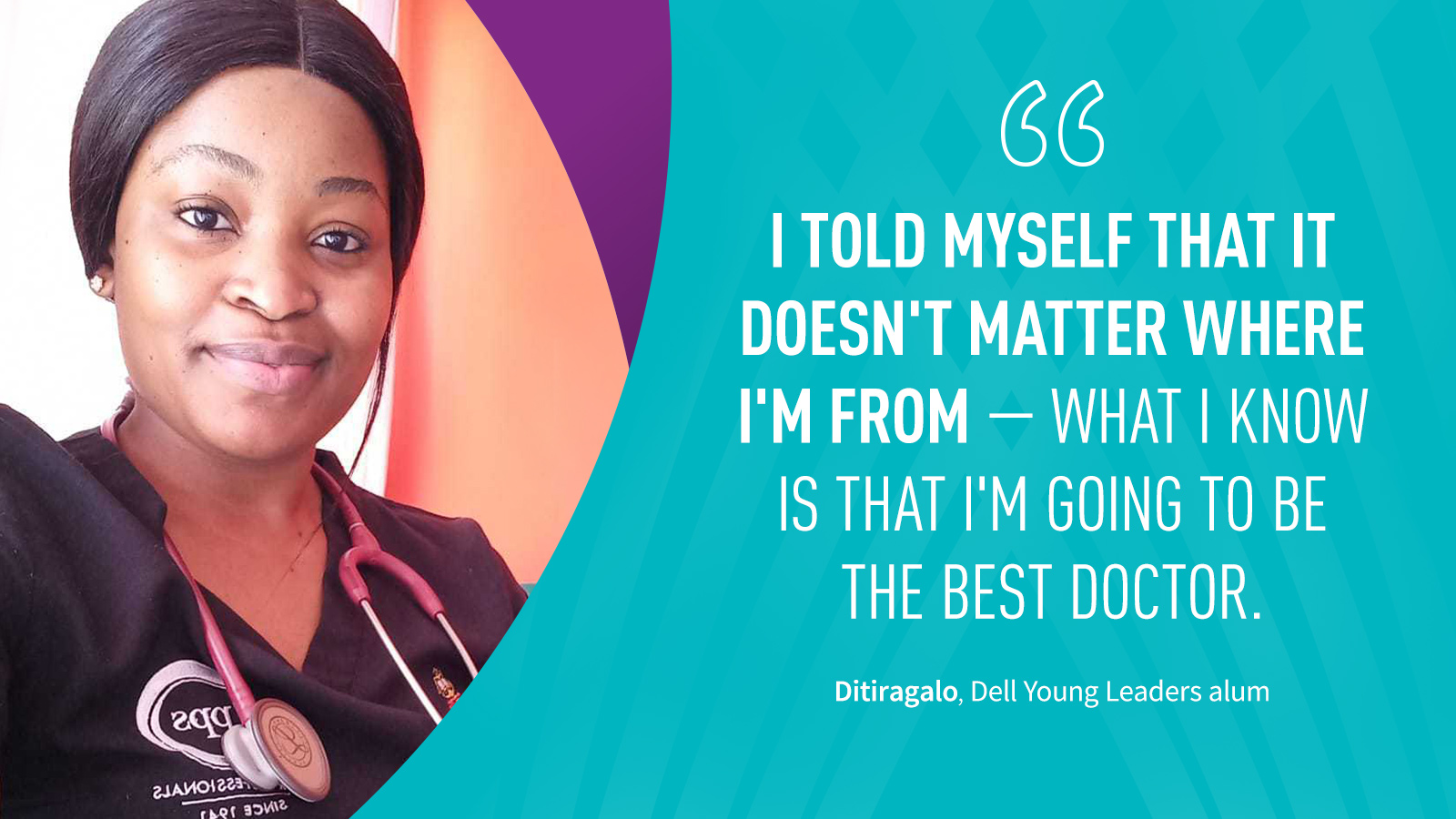Hear from alum Ditiragalo about her journey transitioning from varsity into a career as a doctor.
What was the toughest part about transitioning from varsity into career?
I went to university and knew what I wanted to study, but had no idea about life after graduation.
For my community service, I was assigned to a hospital I did not know existed. I’m from the Northern province and the hospital was in the Free State. I don’t know anyone in the Free State and had never been there. I was stressed about the environment, and worried about how I was going to be a good doctor. Are people going to like me? Am I going to have a good working relationship with my colleagues? How will I adjust?
How did you overcome these challenges?
I told myself — I made it this far, I completed my medical degree. I decided to believe in myself and that I am going to be a great doctor. I also took the mindset of — I’m here to be a doctor that progresses and learns. I’m going to continue studying, continue learning from other colleagues: physiotherapists, occupational therapists, nurses, dieticians.
I was fortunate that the hospital staff was so welcoming and friendly, it was like home. I’m also grateful for that.
What advice do you have for medical students anxious about post-graduation life?
Be open to experiences in regional hospitals, district hospitals, or rural hospitals. The National Health Department is trying to place doctors in rural areas because they are trying to improve the health of these areas in South Africa. You might be one of those doctors placed in hospitals you did not apply for, but the experience is just as valuable.
You might not have fancy CT scans or equipment in your ward, but get into the internship and make your own story, write your own book. When I got here, I told myself that it doesn’t matter where I’m from or what I have — what I know is that I’m going to be the best doctor.
What skills do you think are important for the workplace?
Be humble. Don’t be that doctor that gets in the hospital and feels they are the queen or king of everything. That’s how you’re going to suffer and get down on yourself. Tell yourself you are there to learn, not there to dictate. Don’t get there with a mindset of being a know-it-all. You will be left alone and isolated.
Give yourself time to learn from your mistakes. In pediatrics, I was not good because I knew it all. I was good because I allowed myself to have failures during the process and learn from them.
What skills do you think are overlooked in the healthcare industry but are important to medical professionals?
Networking. You need to maintain the networks you made in medical school. Although you will be placed in different hospitals and provinces, former classmates can help each other with emotional support.
Come out of your shell and network with professionals further along in their career. Visit doctors and have conversations with them, ask questions about how they started their own practice, how they get funding, how they decided where to specialize.
What tips do you have for students to begin building the skills they need for the workforce?
Always upskill. When you get to the working environment you must adjust quickly. Now you are expected to know things, make decisions for your patients, and bring the right management. If anything happens, you are responsible. That’s why it’s important to continue learning, upgrade yourself, don’t be complacent. Continue recapping, go back to your notes, refresh your mind, read new articles, have conversations with your colleagues about difficult cases, and keep learning.
Also, have a plan. I think prospective medical students need to start thinking about what you want to do with that medical degree. An internship is two years and community service is one year. Are you going to be a general doctor, or do you want to specialize? Once you have an idea of what you want to specialize in, research what certificates you have to acquire before you apply for that specialty. Know how long it’s going to take and make informed decisions.
What is a final nugget of wisdom you have to share with students?
Have confidence in yourself. Sometimes you may feel like you don’t know anything, especially during walkarounds. But ultimately, you are your own person and you get to define the type of doctor that you want to be.
Given the current economic environment, new university graduates face a steep road ahead.
The Career Insights Series is designed to help graduate job seekers. Dell Young Leaders alumni share insights on their career path, highlight a day in the life at their employer, and provide guidance to students on how to stand out to employers and prepare for the world of work.

